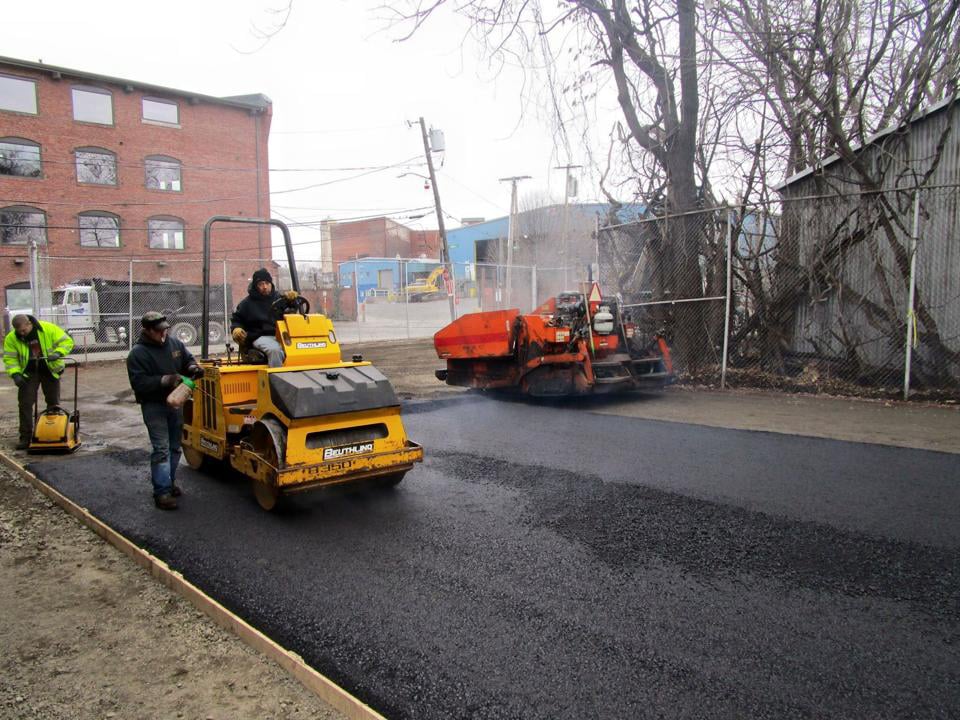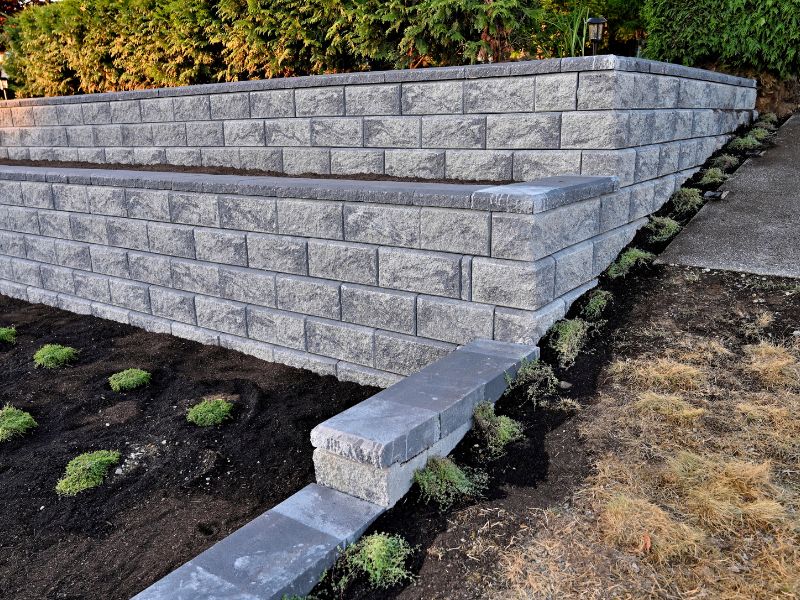Masonry Contractor: Top 7 Tips for Hiring in 2024
Introduction
When looking to enhance your property, choosing a masonry contractor is a crucial step. Whether you’re planning a new patio, a stylish stone walkway, or need repairs on your chimney, hiring the right professional can make all the difference.
Here are the essentials for finding a reliable masonry contractor:
- Ensure they are licensed and insured: This protects you against any liabilities.
- Check references and reviews: Look for positive feedback and satisfied clients.
- Get detailed estimates: Know what you’re paying for upfront.
- Evaluate their expertise and specializations: Ensure they have experience with your specific kind of project.
- Trust your gut: Comfort in communication is key to a smooth process.
Masonry work is a blend of art and science, requiring both skill and creativity. A good contractor doesn’t just build structures; they bring your vision to life with precision and beauty.
What Does a Masonry Contractor Do?
A masonry contractor is a skilled professional who works with materials like brick, block, stone, and concrete to build and repair structures. Their work is essential for both aesthetic and structural purposes. Here’s a closer look at what they do:
Masonry Construction
Masonry construction involves creating new structures from scratch. This can include:
- Foundations: The base of any building, ensuring stability and strength.
- Patios and Floors: Outdoor and indoor surfaces that can be both functional and decorative.
- Dams and Roads: Large-scale projects requiring precise engineering and robust materials.
Masonry Repair
Over time, masonry structures can deteriorate and need repair. Common repair jobs include:
- Repointing: Replacing old mortar between bricks or stones.
- Crack Fixing: Addressing structural issues to prevent further damage.
- Restoration: Maintaining the historical integrity of older buildings.
Types of Materials
Masonry contractors work with various materials, each with unique properties and uses:
- Brick: Used for walls, chimneys, and fireplaces. Brick is durable and offers a classic look.
- Block: Concrete blocks are often used for foundations and walls due to their strength and affordability.
- Stone: Natural or manufactured stone can be used for facades, retaining walls, and decorative elements.
- Concrete: Versatile and strong, concrete is used for foundations, floors, and large-scale projects.
Specific Projects
Here are some common projects masonry contractors handle:
- Chimneys and Fireplaces: Adding warmth and character to homes.
- Retaining Walls: Preventing soil erosion and adding visual interest to landscapes.
- Walkways and Steps: Enhancing curb appeal and functionality.
- Veneers: Applying a thin layer of stone or brick to enhance the appearance of a structure.
Expert Skills
Masonry work requires a blend of physical stamina and technical skill. Contractors must:
- Manipulate Materials: Cutting, shaping, and fitting materials to match design specifications.
- Understand Weather Effects: Knowing how different conditions affect materials like cement and mortar.
- Pay Attention to Detail: Ensuring uniform lines and levels, especially in brickwork.
By understanding the scope and detail of what a masonry contractor does, you can better appreciate the expertise required to bring your project to life. Whether it’s constructing a new patio or repairing an old chimney, these professionals play a crucial role in maintaining and enhancing your property.
Types of Masonry Work
Masonry work is diverse and specialized. Here’s an overview of the key types of masonry work you might need for your project.
Stone Masons
Stone masons work with both natural and manufactured stone. They handle everything from facades on homes to interior and exterior flooring. Stone is versatile and can be used for:
- Walls: Adds a rustic or elegant touch to any property.
- Veneers: Thin layers of stone applied to surfaces for aesthetic appeal.
- Flooring: Durable and visually appealing for both indoors and outdoors.
Stone masons manipulate the material to fit any design, ensuring a perfect look for your project.
Brick Masons
Also known as bricklayers, brick masons specialize in working with various types of brick. They are skilled in creating uniform lines and levels, which is crucial for:
- Chimneys and Fireplaces: Adds functionality and a classic look.
- Columns and Walls: Provides structural support and aesthetic appeal.
- Patios: Durable and stylish outdoor living spaces.
Brick masons ensure that each brick is placed with precision, which is essential for both the structure’s integrity and appearance.
Concrete Masons
Concrete masons focus on working with poured and block concrete. Their expertise includes:
- Driveways and Sidewalks: Durable paths that withstand heavy use.
- House Foundations: Essential for the stability of any building.
- Columns and Walls: Provides structural support.
Concrete work often involves leveling, finishing, and managing the effects of weather as the cement hardens.
Common Masonry Projects
Masonry work can be applied to various projects that enhance both the functionality and beauty of your property.
Chimneys
Chimneys require precise brick or stone placement to ensure safety and efficiency. Regular maintenance and repairs are crucial to prevent hazards.
Retaining Walls
These structures prevent soil erosion and add dimension to landscapes. They can be made from stone, brick, or concrete, depending on your needs.
Patios
Patios extend your living space outdoors. Materials like brick, stone, or concrete can be used to create a durable and attractive area for relaxation and entertainment.
Fireplaces
Indoor or outdoor fireplaces add a cozy element to your home. Brick and stone are popular choices for their durability and classic look.
Walkways and Steps
Walkways and steps improve accessibility and direct traffic flow. Materials like flagstone, brick, or concrete ensure durability and aesthetic appeal.
Veneers
Stone or brick veneers are thin layers applied to surfaces to enhance appearance without the weight of full stones or bricks.
Waterproofing
Waterproofing is essential for protecting your masonry work from water damage. It involves sealing cracks and applying waterproofing sealant to extend the life of your masonry structures.
By understanding the different types of masonry work, you can better plan and execute your project, ensuring it meets both your functional needs and aesthetic preferences.
Now, let’s explore how to hire a licensed masonry contractor to ensure your project is handled by a professional.
How to Hire a Licensed Masonry Contractor
Hiring a licensed masonry contractor ensures your project is completed safely and professionally. Here’s a step-by-step guide to help you find the right contractor for your needs:
1. Verify Licensing and Insurance
Make sure your contractor is licensed and insured. Licensing ensures they have the necessary qualifications and follow local building codes. Insurance protects you from liability in case of accidents or damage during the project.
2. Check References
Ask for references from previous clients. A reputable contractor will be happy to provide them. Contact these references to ask about their experience, the quality of work, and if the project was completed on time and within budget.
3. Get Detailed Estimates
Request detailed estimates from multiple contractors. Compare the cost, scope of work, and timeline. Ensure the estimate includes all aspects of the project, such as materials, labor, and any additional fees.
4. Assess Specialized Areas
Different masons specialize in various areas, such as stone, brick, or concrete. Choose a contractor who specializes in the type of masonry work you need. For example, if you need a new patio, a contractor with experience in concrete work would be ideal.
5. Trust Your Gut Feeling
Your intuition is important. If something feels off during your interactions with a contractor, consider it a red flag. Communication is key, and you should feel comfortable discussing your project with them.
6. Review the Contract
Before work begins, review and sign a detailed contract. The contract should outline:
- Scope of work
- Materials to be used
- Project timeline
- Payment schedule
- Warranty information
A clear contract helps prevent misunderstandings and ensures both parties are on the same page.
By following these steps, you can hire a licensed masonry contractor who will deliver quality work and ensure your project is a success. Next, we’ll look at common masonry projects and their costs to help you plan your budget efficiently.
Common Masonry Projects and Costs
Understanding the costs of common masonry projects can help you plan your budget effectively. Below, we’ll break down the costs for various masonry projects, from interior walls to garden walls.
Interior Walls
Installing an interior brick or stone wall can cost between $1,000 to $3,000. Load-bearing walls tend to be more expensive due to the extra structural support required, while decorative walls are generally less costly. Veneer products are a popular choice for interior applications because they are lighter and easier to install, often mimicking the look of natural stone or brick at a lower price point.
Siding
Brick and stone siding costs range from $6 to $30 per square foot, depending on the quality and type of material. High-end stone siding can go up to $50 per square foot. Siding repairs typically cost between $300 to $1,000. Veneer is also a common option for siding, with costs for veneering an entire home exterior ranging from $10,000 to $50,000. This ancient method offers natural insulation, fire resistance, and low maintenance.
Fireplaces
Installing a fireplace ranges from $1,000 to $3,500. Fireplaces aren’t just for warmth; they are often the focal point of a room. Professional installation can make a significant difference, especially in features and overall aesthetics.
Patios and Walkways
The cost of installing a patio or walkway varies between $1,800 to $4,800. If you’re considering brick pavers, expect to pay between $1,000 to $2,000. A well-designed patio or walkway can transform your outdoor space, adding both value and functionality.
Garden and Retaining Walls
Garden and retaining walls can cost anywhere from $3,000 to $8,000. These walls are typically shorter and are used to frame gardens or support sloping lawns. Materials can range from natural stone to manufactured stone, brick, or veneer surrounding a concrete core.
Steps
Installing stone steps averages around $2,200, but costs can range from $1,000 to $12,000 depending on the complexity and materials used. Brick steps usually cost $150 to $300 per step.
Masonry Repair Costs
Repair costs vary widely based on the structure, material, and extent of the damage. For instance, tuckpointing a chimney starts at about $10 per square foot but can increase if the chimney is taller than 8 feet. For a typical home, tuckpointing can range from $10,000 to $50,000.
By understanding these costs, you can better plan for your masonry project and ensure you get the best value for your investment. In the next section, we’ll explore the pros and cons of DIY masonry work versus hiring a professional construction company.
DIY vs. Hiring a Masonry Construction Company
DIY Challenges
Many homeowners are tempted to take on masonry projects themselves to save money. However, this approach comes with several challenges:
- Skill and Knowledge: Masonry requires a precise skill set. Without proper training, you may struggle to achieve professional results.
- Time-Consuming: Masonry projects can be labor-intensive and time-consuming, especially for beginners.
- Tools and Materials: Specialized tools and high-quality materials are essential. Purchasing these can be costly and inefficient for a one-time project.
- Physical Demands: Masonry work is physically demanding. It involves heavy lifting, bending, and working in various weather conditions.
Professional Benefits
Hiring a professional masonry contractor offers several advantages:
- Expertise: Professionals bring years of experience and specialized knowledge to ensure high-quality work.
- Efficiency: Contractors can complete projects faster and more efficiently due to their expertise and access to the right tools.
- Safety: Experienced masons understand safety protocols, reducing the risk of injury.
- Guarantees and Warranties: Many contractors offer guarantees and warranties on their work, providing peace of mind.
Common Mistakes
DIY masonry projects often encounter several common pitfalls:
- Poor Preparation: Inadequate site preparation can lead to unstable structures.
- Incorrect Mortar Application: Using the wrong type of mortar or improper mixing can compromise the integrity of your project.
- Skipping Waterproofing: Neglecting waterproofing techniques can lead to moisture damage and corrosion.
Waterproofing
Waterproofing is a crucial step in any masonry project. It involves:
- Weep Holes: Small openings that allow water to escape from behind walls.
- Flashing: Metal or plastic barriers that direct water away from critical areas.
- Sealants and Caulking: Used to fill gaps and prevent water infiltration.
Mortar Application
Applying mortar correctly is vital for the durability of your masonry project. Key considerations include:
- Consistency: The mortar mix should have the right consistency for the specific project.
- Application Technique: Proper spreading and jointing techniques ensure a strong bond between bricks or stones.
- Curing: Allowing the mortar to cure properly is essential for long-term stability.
By understanding these aspects, you can see why hiring a professional masonry contractor is often the best choice for ensuring a successful and long-lasting project.
Next, we’ll address some frequently asked questions about masonry contractors.
Frequently Asked Questions about Masonry Contractors
What is a masonry contractor?
A masonry contractor is a trained professional skilled in the construction and repair of structures using materials like brick, stone, and concrete. They handle a diverse range of applications, including building foundations, patios, fireplaces, walkways, and retaining walls. Masons have expertise in working with different materials and can advise on the best options for your project, ensuring durability and aesthetic appeal.
Is masonry work hard?
Yes, masonry work is physically demanding. It requires significant physical stamina and strength. Masons often engage in heavy lifting and repetitive tasks that can strain the body. The job also carries a risk of injuries due to the use of heavy tools and materials. Proper training and safety measures are crucial to mitigate these risks.
Is masonry a profitable business?
Masonry can be a profitable business if managed well. Revenue depends on various factors, including the quality of work, the skill level of the crew, and effective local advertising. Successful masonry contractors often have a skilled crew and a good reputation, which helps in securing more projects. The net margin can be substantial, especially for contractors who manage costs efficiently and maintain high standards of workmanship.
Next, we’ll delve into common masonry projects and their associated costs, helping you budget effectively for your next project.
Conclusion
Choosing the right masonry contractor is crucial for the success of your project. Whether you need a new patio, a retaining wall, or a fireplace, the right professional can make all the difference. Let’s summarize key points to consider:
Summary
Masonry contractors work with materials such as brick, stone, and concrete to create durable and aesthetically pleasing structures. They can handle a wide range of projects, from building foundations to intricate stone veneers. Understanding the different types of masonry work—stone, brick, and concrete—can help you communicate your needs more effectively.
Choosing the Right Contractor
When hiring a masonry contractor, ensure they are licensed and insured. Check their references and ask for estimates. Pay attention to their specialized areas and trust your gut feeling during interactions. A detailed contract outlining the scope of work, timelines, and costs will protect both parties.
Marchi Paving Inc.
At Marchi Paving Inc., we pride ourselves on delivering high-quality masonry services tailored to your needs. Our skilled masons are experienced in everything from traditional brickwork to modern concrete installations. We ensure that every project is completed on time, within budget, and to your satisfaction.
For more information or to request an estimate, visit our Masonry Services page.
Choosing the right contractor can transform your space and add significant value to your property. Trust Marchi Paving Inc. to bring your vision to life with expert craftsmanship and dedicated service.



